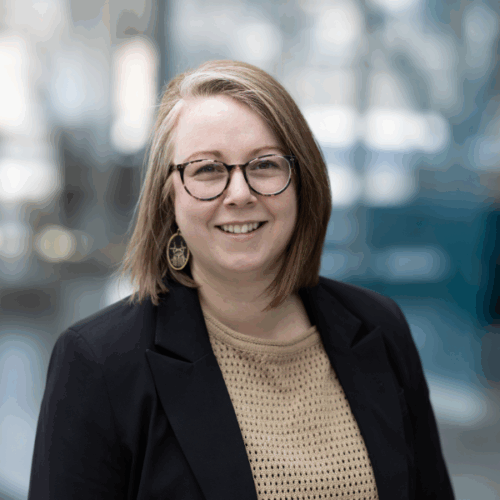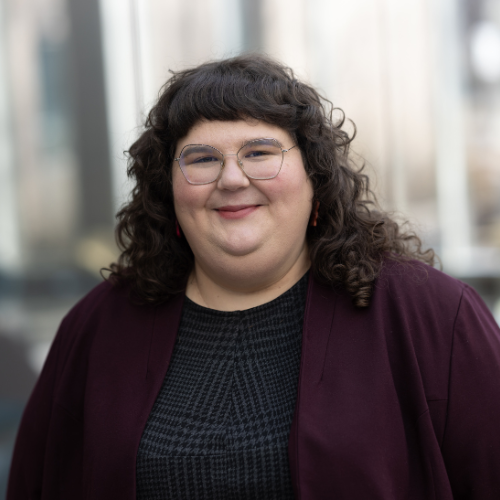The Upton Program
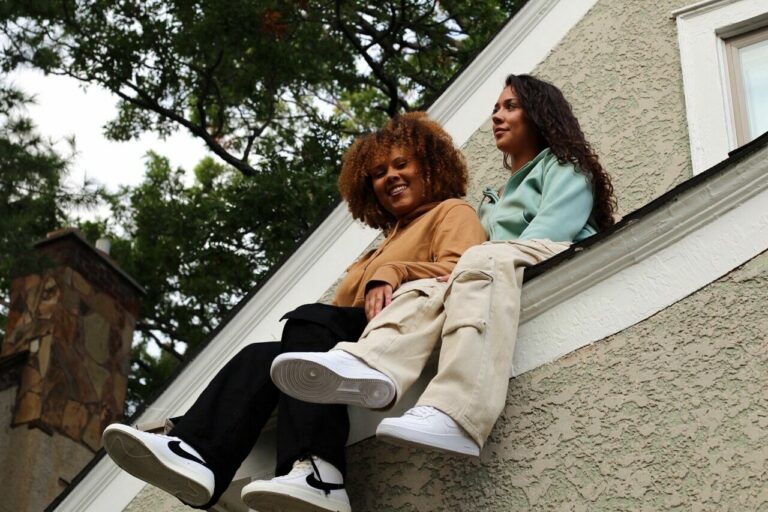
The Upton Program was developed from experiences rooted in the childhood and neighborhood of its founders. Madeline “Maddie” Hodapp and Kimberly “Kimmi” Towers were born and raised in North Minneapolis. The Upton Program (TUP) is named for Upton Avenue that runs through the heart of North. The pair wanted to build an organization that was informed by and created for young parents in their community.
“During the process of naming our organization, we thought about naming it The Upton Program (TUP) as an ode to the street Kimmi and I grew up on,” TUP Executive Director and Co-Founder Madeline “Maddie” Hodapp, said.
“However, we shared some doubts about how the name would be perceived because it may not connect with a larger audience. We always came back to what felt like home, what felt like opportunity, and what we felt called to and decided that The Upton Program needed to be our name,” she said.
Hodapp and Kimberly “Kimmi” Towers, Board President & Co-Founder, agreed that Upton Avenue has always been their center both as children and into their adulthood.
“True Northsiders know and understand the beauty that this side of town brings, even when the outside world cannot,” Hodapp said. “We are survivors of the violence that our community has been victims of, and we are products of what can be achieved when you invest in the people of North Minneapolis. We were poured into just by existing and living on this street, now it’s time we pour into our community.”
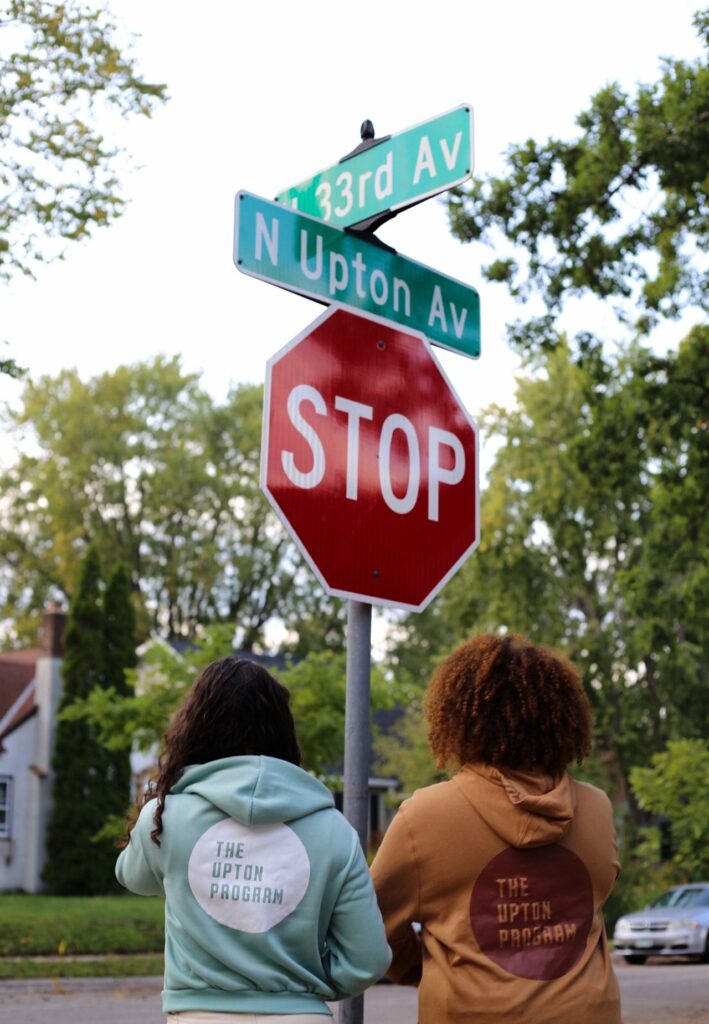
The pair saw a lack of support for those who became young parents in their community; many dropped out of high school, and even less attended or finished college. In a study done by the Urban Institute, (916 parents aged 18 to 24), more than one-third of young parents reported incomes below 100% of the federal poverty level for the household size and 71% of young parents’ household incomes fell below 20% of the federal poverty level. Based on research, the educational attainment of parents can be the best indicator for their child’s economic mobility, health and cognitive abilities. These outcomes can be attributed to young parents having fewer social, cultural, and economic resources to share with their children than do older parents. Maddie and Kimmi’s careers have focused on supporting youth in the child welfare system and providing access to quality financial and educational resources to youth in under-represented populations, respectively, saw these trends playing out and wanted to do something about it.
In November 2022, they facilitated a brainstorming session with parents in the community who had their first child between the ages of 16-24. The goal was to gather insight and feedback for the vision of The Upton Program. This group, and others like it, informed what TUP would become: an organization focused on Equitable Access and programming focused on what parents need.
The organization defines Equitable Access as the recognition that participants come from a different starting point.
“We must make adjustments to address the imbalances and disparities of access to financial and parenting resources and opportunities,” the founders said.
Today, TUP works with parents and pregnant youth between the ages of 18-25 in the Twin Cities. They serve their participants by offering opportunities to develop work-skills, financial literacy, helping parents find access to childcare, and providing other supports.
The program is facilitated with a holistic approach with topics around conflict resolution between child and parent, generational poverty, financial wellness, navigating resources, empowerment, tools for processing shame and guilt, and stepping into one’s purpose. Their focus is on eliminating barriers for a community of young adults that consistently must choose whether they should pursue full time work and/or school or not, due to childcare costs.
“My favorite part about this work is building relationships with the parents we have been able to connect with. We are creating a model that does not assume that our role is superior to that of those we are serving.” Hodapp said.
She explained, “we have invited parents to walk with us to develop something that they feel proud of, that they feel listened to and that they feel a sense of belonging and ownership. Being collaborative partners with parents is one of our most important values and as an active participant in that has been enlightening and life changing.”
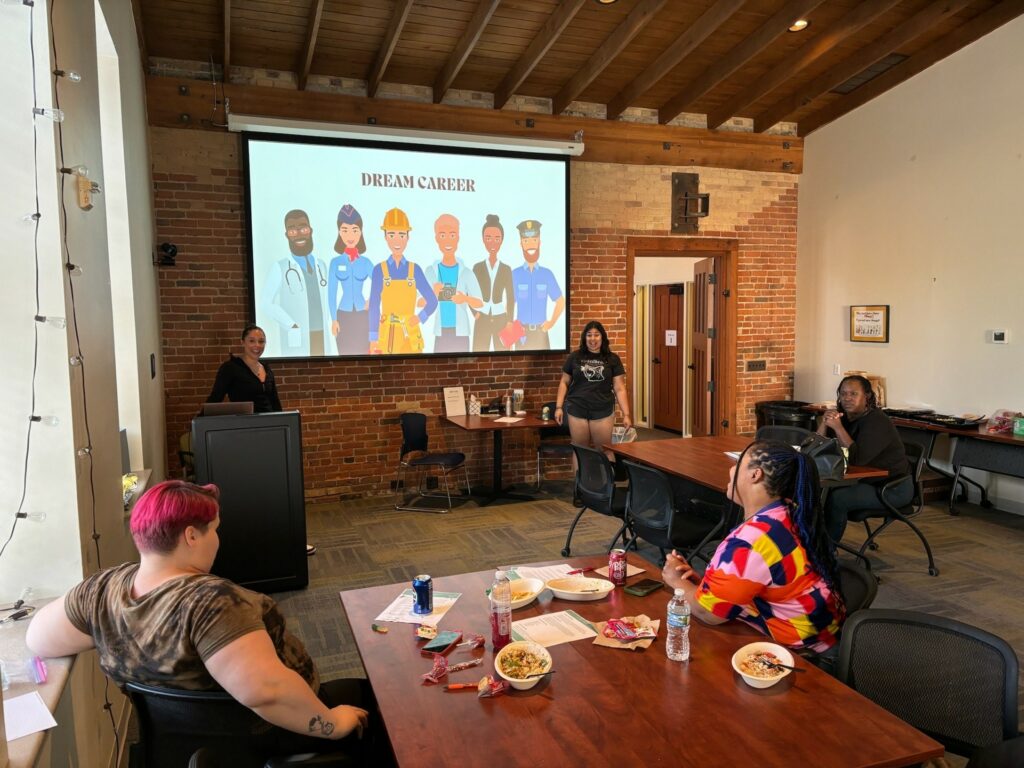
Currently there are several established programs that provide a service or resource to parenting youth that focus on child development, child and parent relationships, and postpartum depression. There are not many programs that focus on career readiness specifically for parenting youth- while also addressing their barriers to a career or post-secondary education and educating about financial wellness.
“Positive, generative support for parenting and pregnant youth is revolutionary in many ways,” Heather Allen, Propel Senior Fiscal Sponsorship Consultant, said. “The Upton Program approaches this work in a way that centers respect for the participants. I have loved watching Maddie and Kimmi build an organization truly rooted in their community. It is an organization that understands how savvy, smart, and resourceful their participants are.”
What’s Next for the Upton Program?
Maddie Hodapp shared with Propel:
TUP is eager to become an established resource and courageous space for young parents to engage in and be successful. Our program is intended to hold an employment opportunity that will allow parents to actively gain job skills, financial compensation, and create more access to community resources and connections. A part of TUP’s strategic plan is to own a coffee shop that will be participant led. Parents will have an opportunity to tap into the “how” of operating a coffee shop and will be able to identify which areas they want to gain more knowledge about as they grow through the program.
As parents graduate from the program, we will have a built-in career pathway, that they get lead, through partnerships with businesses and organizations who are willing to offer TUP parents with the opportunity to work for them and begin or continue their career journey.
Also, we are a 2024 recipient of funds from the City of Minneapolis Partnership Engagement Fund. We look forward to the opportunities this funding will bring and look forward to having more supporters join us.
Call to action
We are continuing our initiative around building a “for us, by us” model by facilitating a pilot program this Fall! Parents who live in Minneapolis and are between the ages of 18-25 are welcome to apply. We are looking for parents who are interested in not only building their capacity to wealth building but also want to provide feedback to the program to ensure that the program model is equitable and accessible to young parents in the community in the future.
The pilot is looking for a Curriculum Facilitator, Community Mentors and someone to provide childcare. Download a flyer here to learn more.
Additionally, you can:
- Engage in a partnership if you are also supporting the community in wealth building and being financially well
Propel’s Impact
TUP is fiscally sponsored by Propel Nonprofits. Over the course of the last eight months, they participated in Propel’s Emerging Nonprofits Cohort. Participants in the program cultivated a community of emerging organizations who could rely on each other to create professional networks, share skills, and strengthen their organizations. Propel provided space for connection and offered skill-building programming.
“As someone who has started something for the first time, it can be intimidating to enter into a system that already has built in red tape, especially for community led organizations and initiatives,” Hodapp said. “The facilitators and my peers, who had varying experiences when navigating the nonprofit world, made me feel welcomed, heard, and empowered to continue on and to not be discouraged.”
Hodapp said that participating in Propel’s Emerging Organization Cohort provided her the platform to be bold and to ask questions which has allowed her to engage in more conversations and build in more practices that will ultimately benefit The Upton Program.

